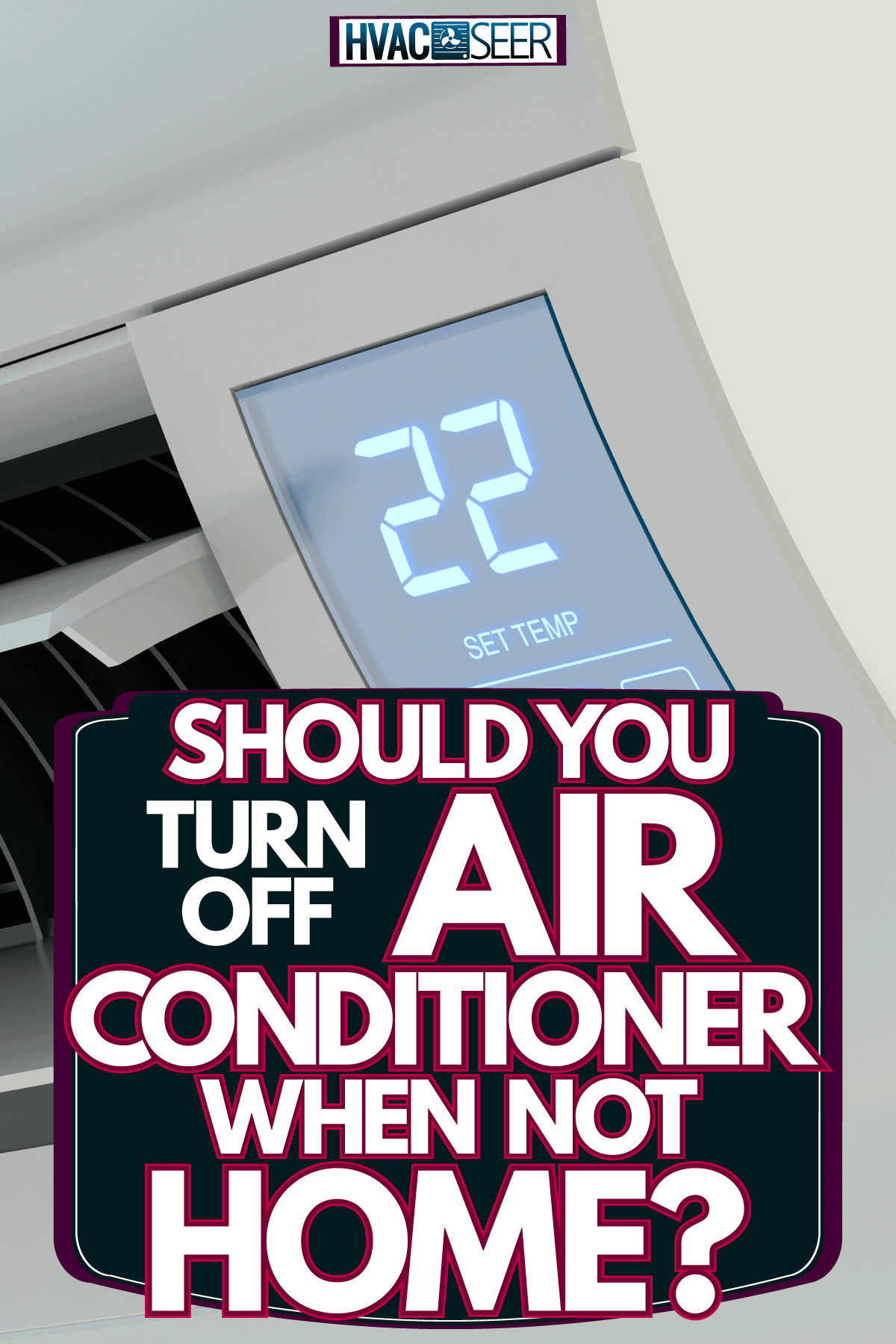Ever wondered what to do with your AC when on vacation or if you should turn your thermostat off when you're not home?
Making the right decision can translate to savings and system longevity.
Well, we've done plenty of research to help you navigate the ins and outs of different air conditioner setups.
We'll explain what to do with your air conditioner when you head out of town for extended periods, including the potential consequences of neglecting the system in your absence.
Ready? Let's dive in!
Is it Better to Leave the Air Conditioner on While I'm Not Home?
Yes, for the most part, you want to keep your AC on while you're out of the house.
If you plan on being gone for less than a few days, it's better to keep your air conditioner running than to turn it off completely.
That said, if your trip is longer than three days and the weather forecast calls for moderate temperatures, you can turn off your AC system.
What Temperature Should I Leave My AC on When Not Home?
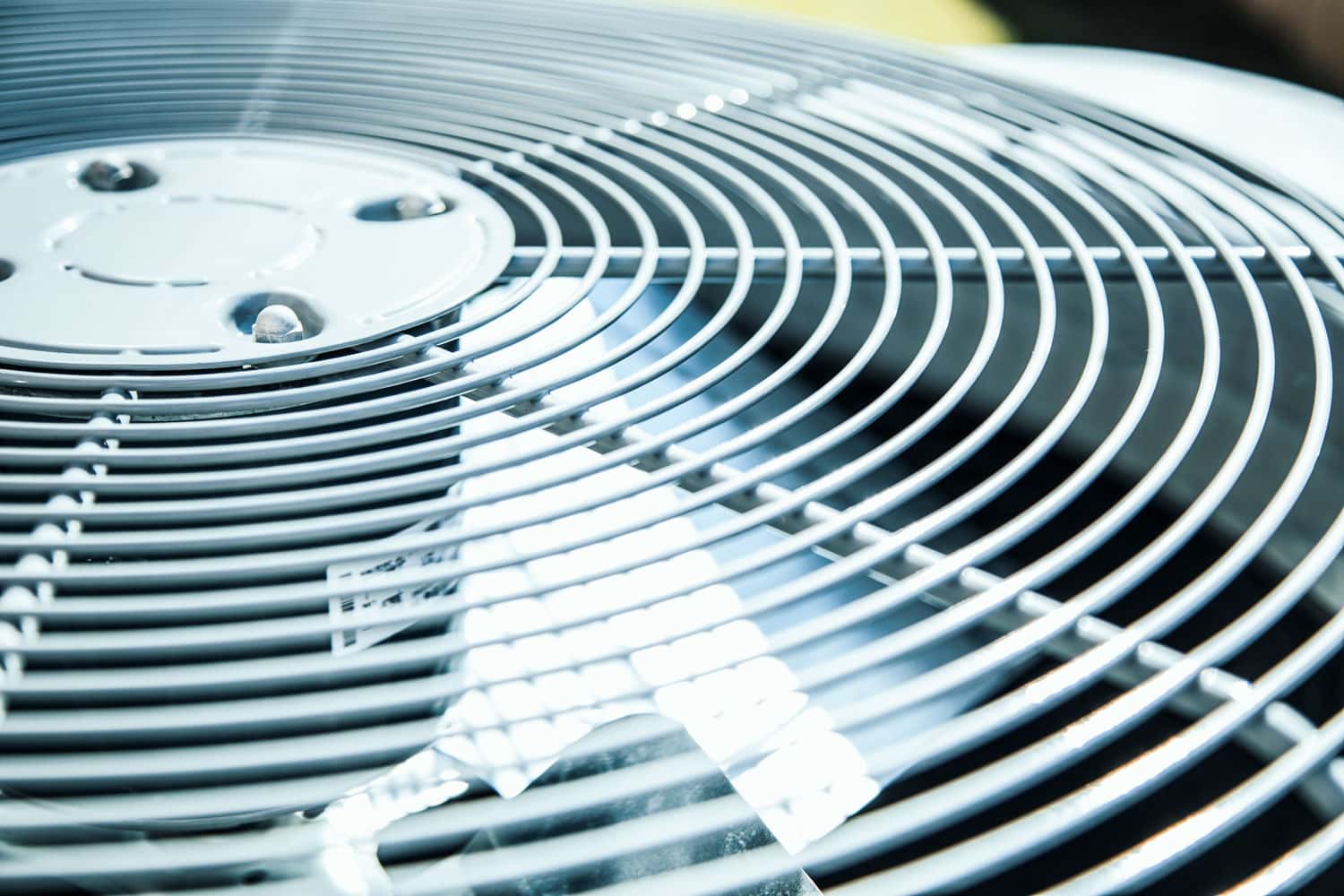
You'll want to set your thermostat to 78°F (26°C) when you're home and awake and reduce the temperature by 7°-10°F when away or asleep.
Doing this will save up to 10% annually on cooling heating and cooling, as suggested by the U.S. Department of Energy.
A higher setting doesn't just save energy; it also helps prevent humidity build-up, which can lead to mold growth.
According to the Environmental Protection Agency (EPA), maintaining your home's humidity below 60% can prevent mold growth.
If you have pets, it's essential to ensure their comfort. While they can tolerate a broader range of temperatures, consistently warm environments can be stressful.
Keeping your home between 69°F and 72°F (20°C to 22°C) is generally best for most pets.
Read this article to learn more: What Temperature To Set Air Conditioner When Away
Is it Safe to Leave Your Air Conditioner on When Not Home?
Yes. Generally, window air conditioners are designed to provide consistent cooling to spaces and are built to operate for extended periods.
However, when contemplating whether to leave one on when not at home, several factors come into play:
- Overheating risk: All electronic appliances, including air conditioners, risk overheating if operated non-stop. Modern units have safety shut-offs to prevent this, but older models might not have such features.
- Power surges: Unexpected power surges can risk any electronic device. If a surge occurs while you're away, it could potentially harm the unit.
- Improper installation: If a window air conditioner is not correctly installed, there's a risk of it falling out or allowing external elements, such as rain, to seep in.
- Wear and tear: Continuous operation can lead to faster wear and tear, potentially reducing the unit's lifespan or leading to malfunctions.
So, while it's generally safe to leave your AC on when not at home, it's essential to ensure the unit is in good working condition, properly installed, and preferably not too old.
How Long is it Safe to Leave an Air Conditioner on?
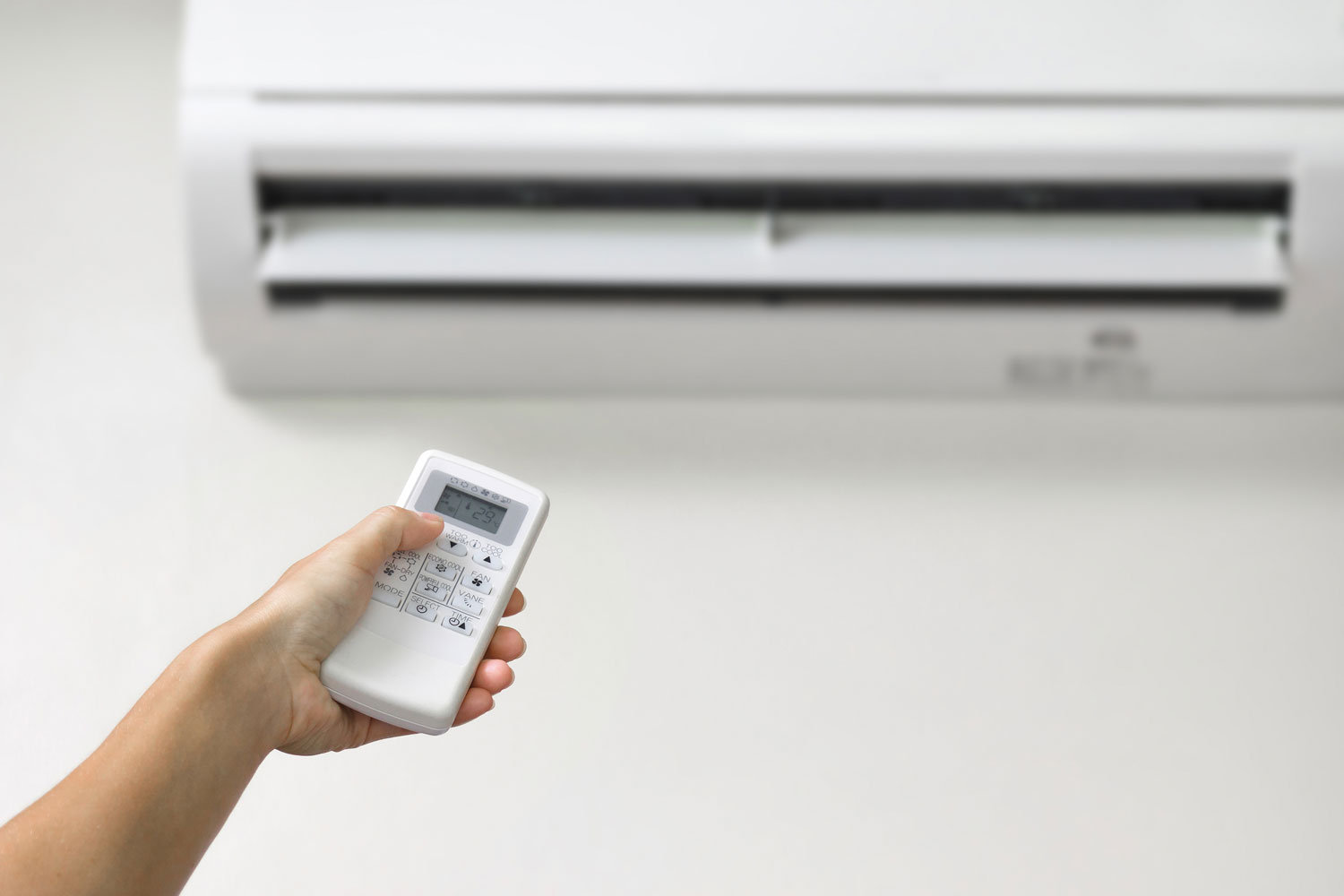
Technically, most modern air conditioners can run continuously for 24 hours without causing damage as long as the system is healthy.
Your AC will cycle for 10-15 minutes a few times per hour and might run shorter or longer depending on the weather outside.
Continue reading: Can You Leave A Window Air Conditioner On 24/7?
Safety Measures When Leaving Your AC on When Not Home
While modern AC units are designed for prolonged use, precautions can help mitigate risks.
Here's what you should consider:
- Regular maintenance: A clean and well-maintained window AC minimizes malfunction risks. Periodically cleaning the filters and inspecting the unit for potential issues is vital.
- Use a timer: By utilizing this feature, you can automatically set your room or office to maintain a desired cool temperature, even when you're not home.
- Surge protector: A surge protector can provide an added layer of safety against unexpected power spikes.
How Leaving Your AC on When Not Home Saves You Money
Contrary to what some might think, leaving the AC on when not at home might actually save money in the long run. Here's how:
Consistent Energy Use vs. Power Surges
Turning your AC on and off can cause energy-consuming power surges.
Maintaining a steady temperature while away reduces these surges, leading to more consistent and potentially reduced energy use.
Reduced Wear and Tear on AC Compressors
Frequent stops and starts can put more strain on the compressor, potentially leading to premature failures.
A compressor replacement is not only expensive but also means increased downtime for the unit. On the other hand, letting it run consistently at a moderate load can extend its life.
Efficient Thermostat Use
Setting it a few degrees higher when away ensures the AC doesn't work as hard to return to the desired comfort level upon your return.
With this, it reduces the energy needed compared to having to cool down a significantly hotter room after a prolonged system shut-off.
Will Turning Off My Air Conditioner Save Money?
It's often better not to turn off your AC entirely. Turning it off can make your home stuffy and force the system to work harder later.
You should seldom fully turn your unit off. Instead, just turn the thermostat up when you're away for less than three days.
Which Mode in AC Consumes Less Electricity?
To save electricity, you want to set your air conditioner to its "FAN" mode.
Doing this will keep your AC fan running without using its compressor, which tends to require the most energy.
Of course, the air may not be as cold as usual on fan mode, but if the weather is good, you shouldn't notice a huge difference.
Is it Better to Leave the AC on Auto or on?
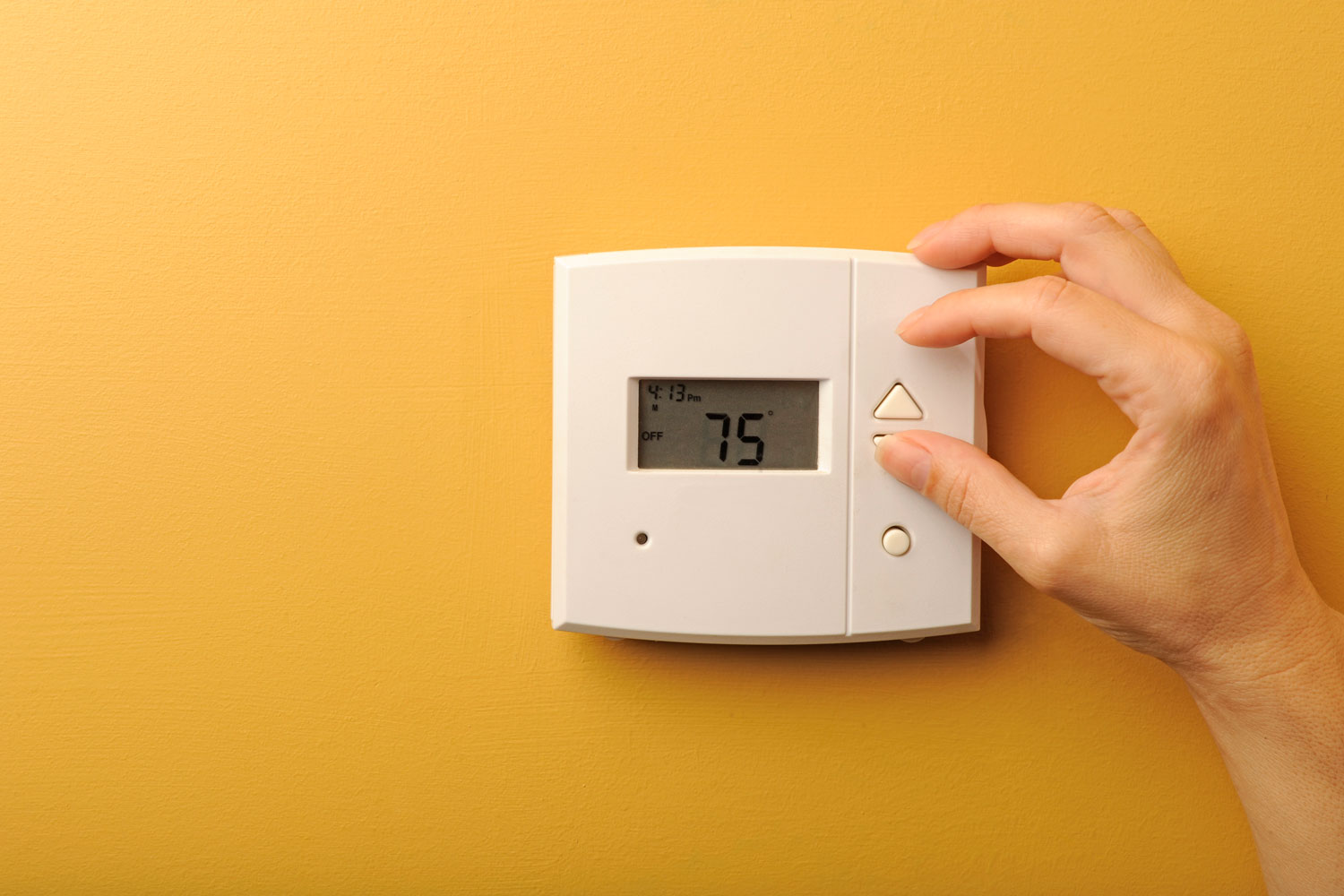
In most cases, you want to keep your air conditioner on its "AUTO" setting. This will save energy and is a good way to give your AC a break between cooling cycles.
Especially during the summer, setting your AC to auto will help allow its cooling coils to drain throughout the day.
Unlike keeping your air conditioner on 24/7, setting it to auto will only require it to power on when its thermometer reads higher than a specific temperature.
Is it Bad to Turn The Air Conditioner Off in the Summer?
Typically, places with mild summer weather won't experience high humidity or tons of pests, which allows for open windows and less air conditioning.
On the other hand, if you are somewhere with super hot summers or high humidity, you don't want to turn off your AC.
Doing this can create mold and mildew issues in your house and even cause a bug infestation.
Related article: How Long Does A Central Air Conditioner Last In Florida?
Does Turning Off the AC at Night Save Money?
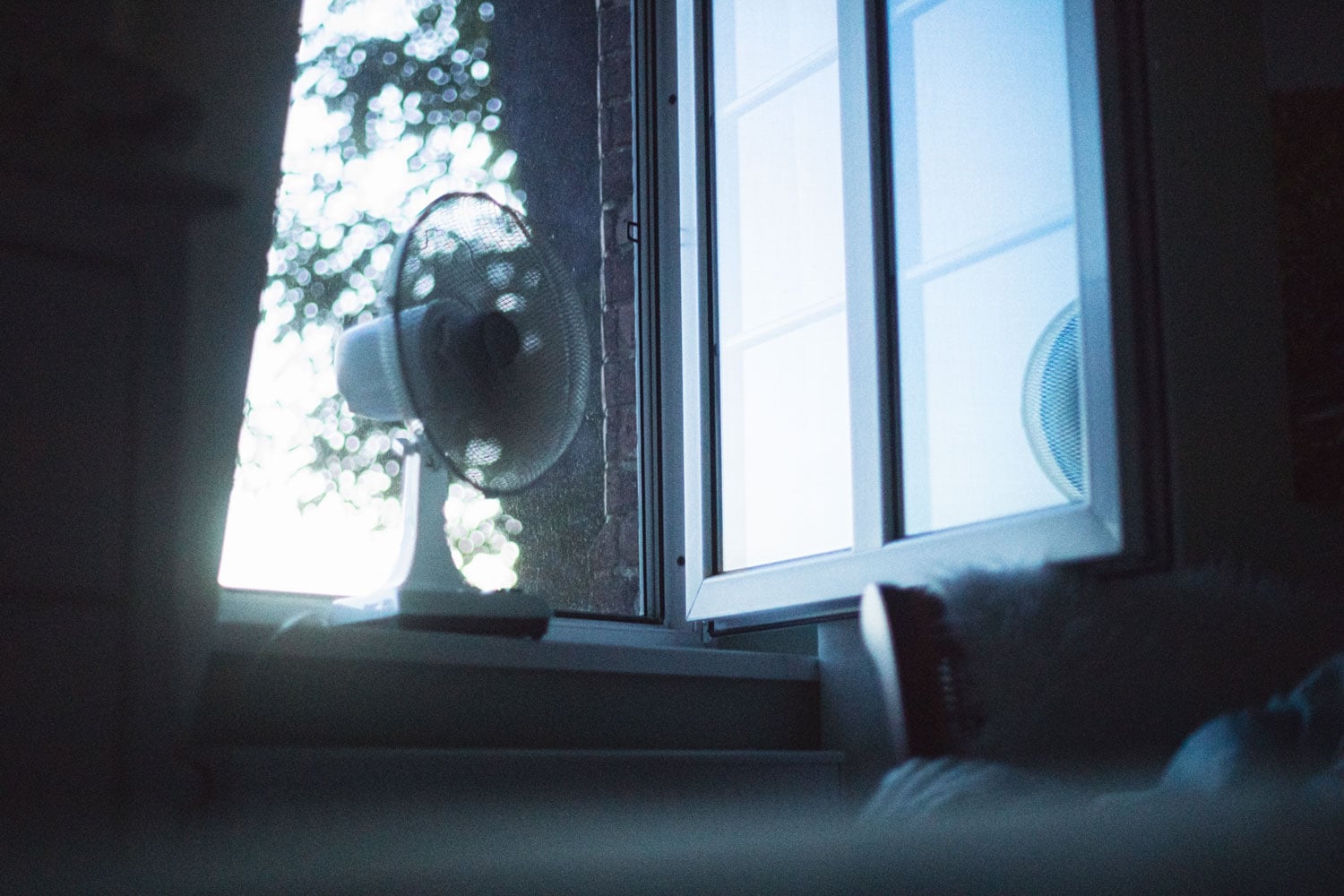
If the temperature outside is lower than your AC's set climate, turning it off might help save you some money.
In general, you want to turn off your AC if the weather is 10-20 degrees cooler than inside your home and try opening up a few windows.
Doing this at night will save you energy and give your system a break, so it's a win-win.
Be sure to read: Air Conditioning Vs Open Windows At Night: Which Is Best?
What Can I Use to Cool My House Instead of AC?
If you don't want to use the AC while you're at home or away, there are some alternatives.
Turning on your ceiling fans and getting a few rotating floor units will work the best.
You can also try opening your windows if the weather outside is moderate, although this can attract bugs.
Even switching your air conditioner to its "FAN" mode will help keep your house comfortable and won't use nearly as much energy as a regular setting.
3 Alternatives That Cool Like Air Conditioners
If you're searching for efficient ways to keep your home cool without relying on traditional air conditioning units, here are three alternatives to consider:
Evaporative Air Coolers
Often called "swamp coolers," these devices cool air by passing it over water-saturated pads, causing the water to evaporate and lower the air temperature.
They're most effective in dry climates.
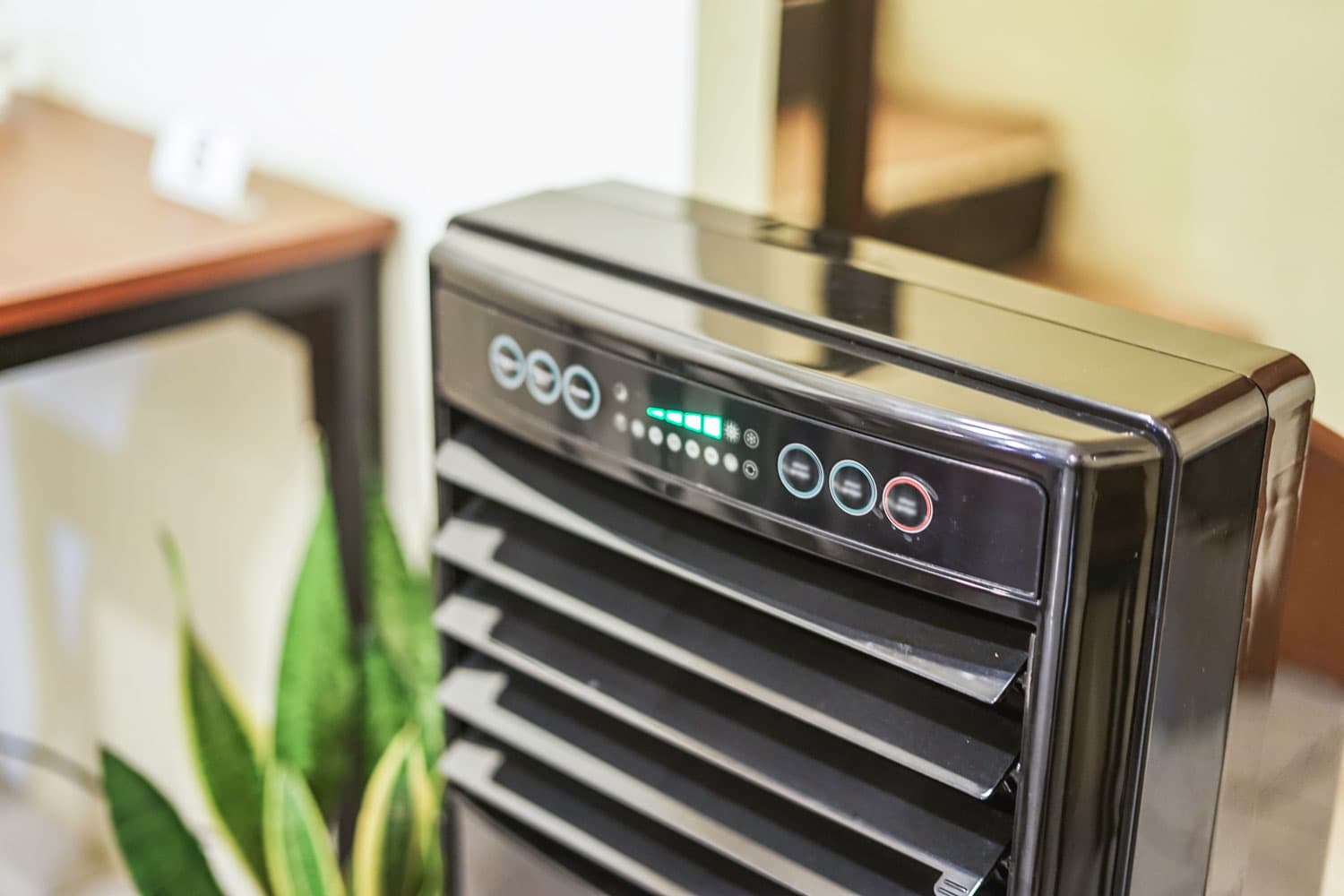
Bladeless Tower Fans
Unlike traditional fans, these provide uninterrupted airflow and can be quieter. They're efficient at circulating cool air around the room.
For a reliable option, consider the Lasko Oscillating 3-Speed Tower Fan.
Lasko Oscillating 3-Speed Tower Fan
This electric fan has a tower design, three-speed settings, an LED display, oscillates, and comes in two colors.
Follow this link to see the price on Amazon.
Misting Fans
Combining the principles of a fan and a humidifier, these fans release a fine mist along with the air, significantly reducing the surrounding temperature.
They're especially refreshing for outdoor use during hot days.
To Wrap Things Up
As you ponder the balance between turning your AC on and off versus leaving it on, consider the duration of your time away.
For short absences or vacation periods of less than three to four days, it's often more efficient to adjust the thermostat rather than turn off the unit completely.
However, if you'll be gone for an extended time and the weather permits, feel free to turn off the AC and open some windows to save energy when not home.
Did you find this article helpful? Let us know in the comments below!
Want to add this article to your Pinterest board? Use this image!
